July 16 - July 20, 2018
at the DoubleTree Hotel in Rohnert Park, CA
Tentative Focal-Sessions Choices Include:
Concurrent Sessions are in the format of an engaged lecture or interactive data presentation. They should include reasonable time for answering audience questions, but should primarily be presentations of experience with critical thinking in research, theory, or practice. Each sessions runs 50 minutes in length.
Roundtable Discussions are held in circles, and are more discourse-based. Each Discussion leader will begin with a 5-10 minute presentation, which will then open into a Socratic dialogue among everyone in the circle. (In some cases, two or more Roundtable Discussions may be combined to facilitate sufficient attendance at each discussion.) The Roundtable Program discussions take place concurrently for 50 minutes.
All proposed Sessions and Discussions should be based on sound research and substantive theory. All proposals will be evaluated by Senior Fellows of the Foundation for Critical Thinking and selected scholars from the field. The deadline for submission is February 26, 2018.
We invite proposals that focus on applying critical thinking to instruction (in any subject, discipline, profession, governmental agency, business, or specialization), or to important issues requiring critical thinking in any domain of work or human life. We invite proposals from faculty, administrators, scholars, professionals, military and government personnel, and teachers at all levels. We are looking for proposals that explore the relationships between critical thinking and reasoning within academic subjects and disciplines, within professions, or within significant domains of human life. We also invite proposals that deal with overcoming the barriers to critical thinking development. We welcome proposals focused on cultivating the intellect, and on developing and assessing intellectual constructs in any field of study.
We also invite proposals focused on the relationship between critical thinking and the evolution of the public citizen. Thus, we invite proposals that highlight the analysis and assessment of thought in connection with the development of intellectual virtues (such as intellectual humility, intellectual empathy, and intellectual integrity) in any part of life. All proposed Sessions and Discussions should dovetail with the core concepts of critical thinking presupposed in Focal Sessions at the conference.
Concurrent Session presenters and Roundtable Discussion leaders will be required to register for, and participate in, the entire conference (July 16 - July 20). This is because all elements of the Annual International Conference should be deeply integrated, each building on the others, and each presupposing the same foundational critical thinking concepts and principles.
To submit a proposal, please email [redacted] at [redacted - Call for Proposals has ended]. Proposals must be received by Friday, February 26. Please submit in an editable format such as MS Word or plain text, not as a PDF or other image format. Include the following information in your proposal:
| If Paid by June 16, 2018 | Price Per Person |
|---|---|
2-Day Option |
|
5-Day Option |
|
| If Paid AFTER June 16, 2018 | Price Per Person |
|---|---|
2-Day Option |
|
5-Day Option |
|
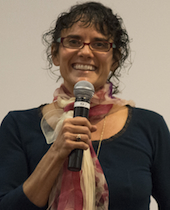
Dr. Linda Elder is an educational psychologist and international authority on critical thinking. She is President and Senior Fellow at the Foundation for Critical Thinking. Dr. Elder has taught psychology and critical thinking at the college level, and has given presentations to more than 50,000 educators and leaders. She has coauthored four books, including 30 Days to Better Thinking and Better Living and Critical Thinking: Tools for Taking Charge of Your Professional and Personal Life. She has also coauthored 24 Thinker's Guides on critical thinking. Concerned with understanding and illuminating the relationship between thinking and affect, and the barriers to critical thinking, Dr. Elder has placed these issues at the center of her thinking and work.
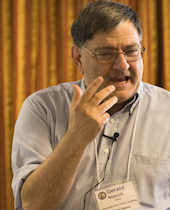
Dr. Gerald Nosich is a prominent authority on critical thinking and Senior Fellow at the Foundation for Critical Thinking; he has given more than 150 national and international workshops on the subject. He has worked with the U.S. Department of Education on a project for the National Assessment of Higher Order Thinking skills, has served as the Assistant Director of the Center for Critical Thinking, and has been featured as a Noted Scholar at the University of British Columbia. He is Professor Emeritus at SUNY Buffalo State and the University of New Orleans. He is the author of two books, including Learning to Think Things Through: A Guide to Critical Thinking Across the Curriculum .
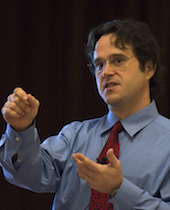
Dr. Brian Barnes holds a Ph.D. in Interdisciplinary Humanities and an MA in Philosophy from the University of Louisville. Barnes is a veteran of the US Army, along with other non-academic careers, and currently teaches face-to-face and online classes at several universities in traditional philosophy topics, along with courses in sustainability, critical thinking, and Japanese sword practice. He has co-authored articles examining critical thinking strategies and tactics for the National Teaching and Learning Forum and is the author of the textbook, The Central Question: Critical Engagement with Business Ethics (2013). Barnes co-hosts the weekly radio show, Critical Thinking for Everyone!, on 106.5 Forward Radio in Louisville, and he also created the critical thinking comic book series, Adventures in Critical Thinking. Dr. Barnes is a Scholar of the Foundation for Critical Thinking and a direct student of Dr. Richard Paul.
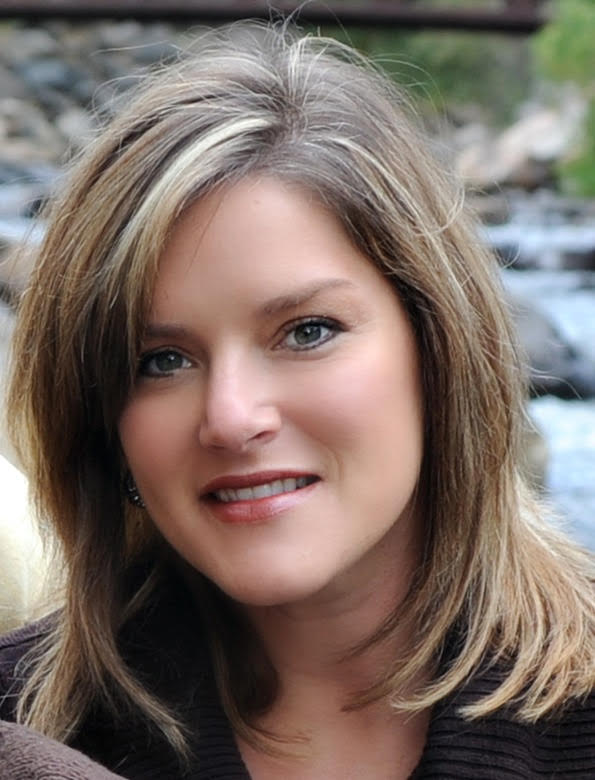
Carmen Polka has worked diligently to infuse critical thinking into her classroom instruction, curriculum, and assessment for more than fifteen years. Focused on transforming education through implementation of quality instructional practices, Ms. Polka instigated and co-authored the writing of the Colorado Academic State Standards targeting research and reasoning based on the Paul-Elder framework. As a leader and critical thinking expert in her district, she led professional development and coached K-12 teachers to effectively utilize the Paulian theory. Ms. Polka is a Doctoral candidate in the Educational Leadership and Policy Studies program at the University of Northern Colorado. In addition, she is a licensed principal, elementary teacher, and K-12 Special Education teacher.
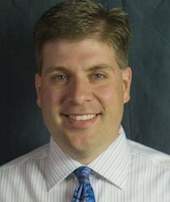
For more than 10 years, Dr. Bankes has played an important leadership role in fostering the Paulian conception of critical thinking in instruction across his district. As a principal, he led the implementation of this critical thinking approach to achieve state-recognized levels of achievement in three different Title I schools - a high school, a middle school, and an elementary school. He helped author the reasoning portion of the Colorado Academic Standards that are based on the Paul-Elder framework. In addition to his administrative experience, Dr. Bankes has taught courses at the college level in critical thinking and served as an elementary teacher.